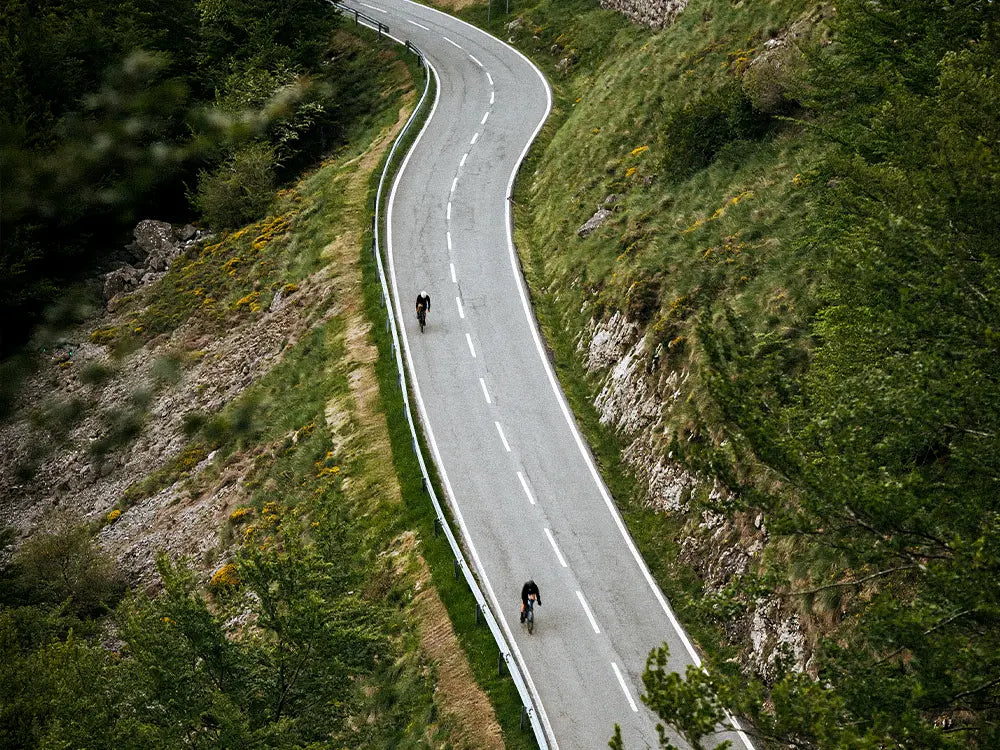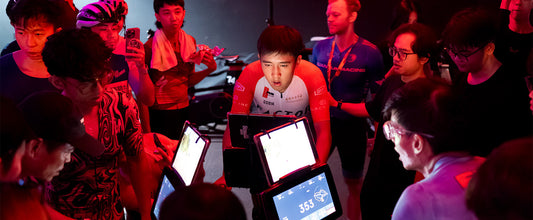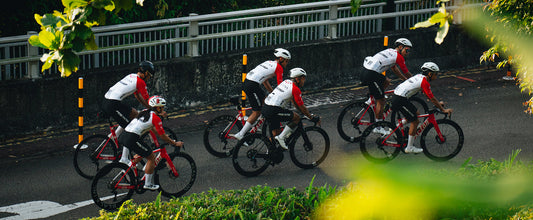When we ask Marta where they get the strength to keep pedaling, her heart speaks for her: "We simply can't stop cycling, because it really helps us to get ahead, in a context of war and pain. The bicycle allows us to stay together, to give the best of ourselves and to maintain our economy."
Marta Zakharova is co-founder of Makeba Cycling. It is located in Lviv, the name of a city that has been in the news quite a lot these months. We are talking about the westernmost city in Ukraine, and therefore the furthest from Russia, but not for this reason it is no stranger to the war that has been going on for a year and a half.
Here cycling would seem a chimera, but Marta and her family hold on to the handlebars with even more strength, for many reasons.
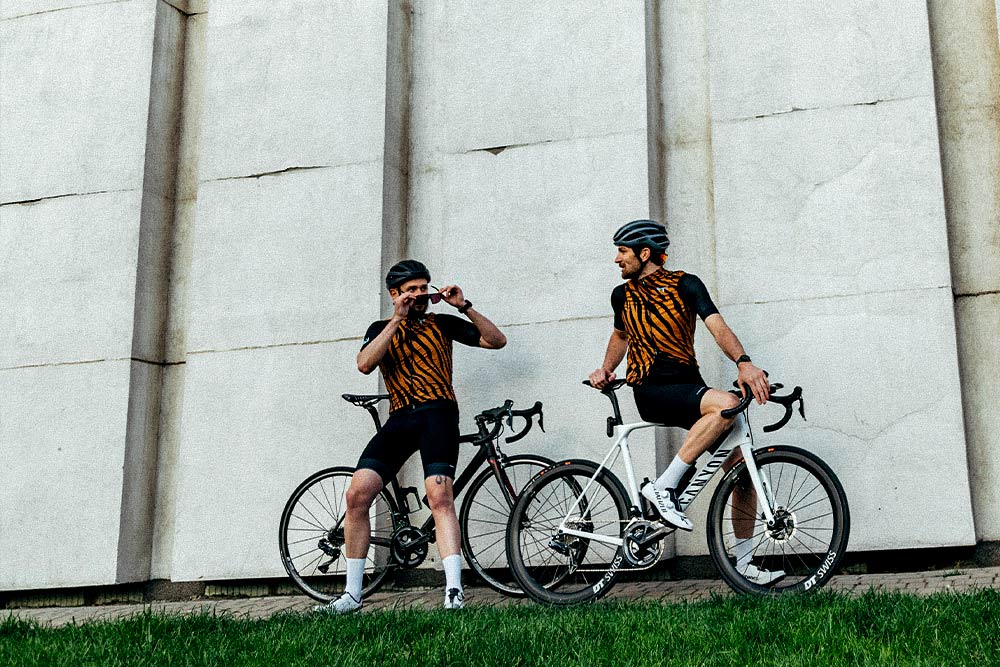
For what she said at the beginning, but also because of one of her trainers who "is at the front, as a soldier, and we must stay here strong for when he returns after the victory. Even if it sounds a bit cynical, we have to live. If we keep doing our thing, if Ukraine doesn't stop, our army will have a reason to keep fighting for our freedom."
It all started six years ago...
"About six years ago, a coach and a student were going around Lviv with the goal that other people would try the happiness of cycling. They created a Facebook page, named after "Makeba", a popular song of the time. Thus was born what is now the leading Ukrainian amateur cycling club. It was the way a hobby turned into the job that today employs several trainers and managers."
Since then some 500 people have passed through his club. Right now there are about 70 of us, divided into four levels," Marta continues. Our sport team takes part in races, then there is a group of cyclists who are not ready to compete yet, but they learn quickly about tactics and technique and improve their fitness. The "Chill Group" is made up of people who want to stay in shape, and the "Starters" start from scratch and some go on to compete.
Cycling as a chess game
In his activity, we were struck by his fondness for chess: "We like this link, chess and cycling. Our coach always insists that, between two physically equal cyclists, the smarter one wins. The race reminds us of a game of chess and that's why we work on this aspect, in addition to training. Our riders are used to participating in chess tournaments and always bring a chess board with them to the competitions".
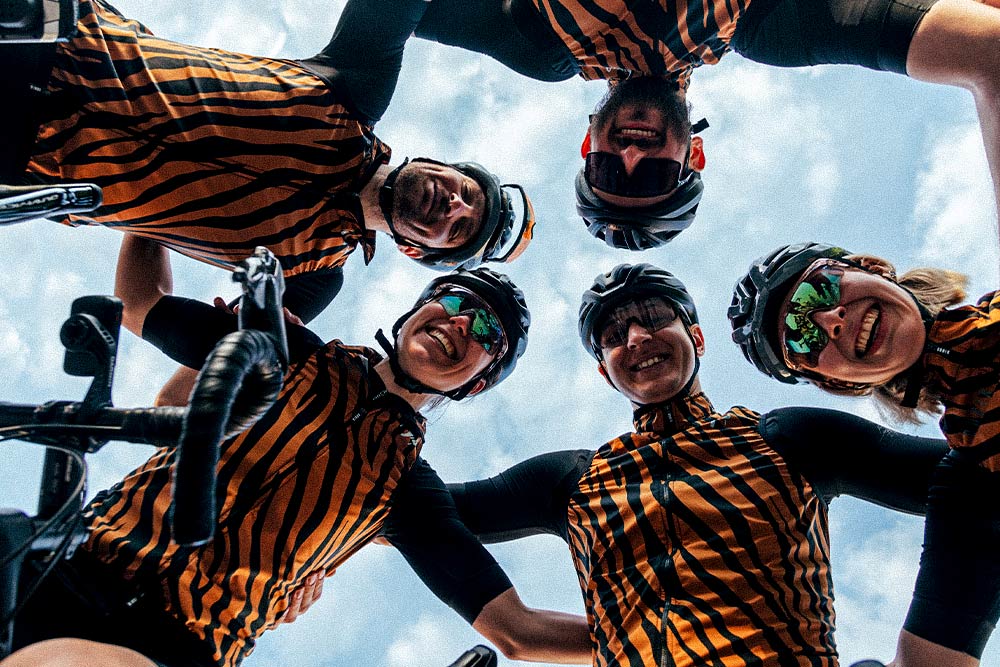
Chessboard or no chessboard, they enjoy cycling, the start and the finish: "We have an excellent café in the clubhouse, called Makebaza. Here we relax, cook and create the best atmosphere for after each ride, while we plan new routes".
For Marta "Lviv is the best place in Ukraine for cycling, with an extensive network of well-paved secondary roads and the proximity of the mountains of eastern Ukraine".
Zebra features on her clothing
Interesting is the story around their appearance on the roads: "We did some research on which clothing suppliers could work with us and saw that some of our cyclists already had some of the Gobik. They gave us good feedback on the clothing and we decided to work with them. Gobik”.
In this sense, Marta admits that "it's easy to work with them. A 30-minute phone call plus a couple of e-mails and their designers came up with the design we were looking for.
"We've come up with a unique design that attracts looks," he says.
But what was the process like?
"The whole thing was born out of fun, but when the group we had formed started to go through complicated times, we wanted to fill the proposal with meaning. It wasn't complicated, Makeba is a common surname in Africa and that led us to look for an African theme. We mixed the features of the zebra with the colors of the tiger. The buffalo-shaped logo, painted in black, symbolizes the dark times we are living in Ukraine."

They want to be a ray of light, a glimmer of hope in such sad days. The bicycle is their ally: "When the invasion started, we were in shock, not knowing what to do, whether it was appropriate to go out on a bicycle. After a month, one of our riders sent a message: "Guys, I'm going crazy, so let's get out on the bike."
"It was the sign that people needed to get on with their lives and we did it with the help of the bike," Marta concludes. We had a hard time sleeping through the nights of missile attacks, but we got through it, our love for the bicycle has been greater than the fear."
